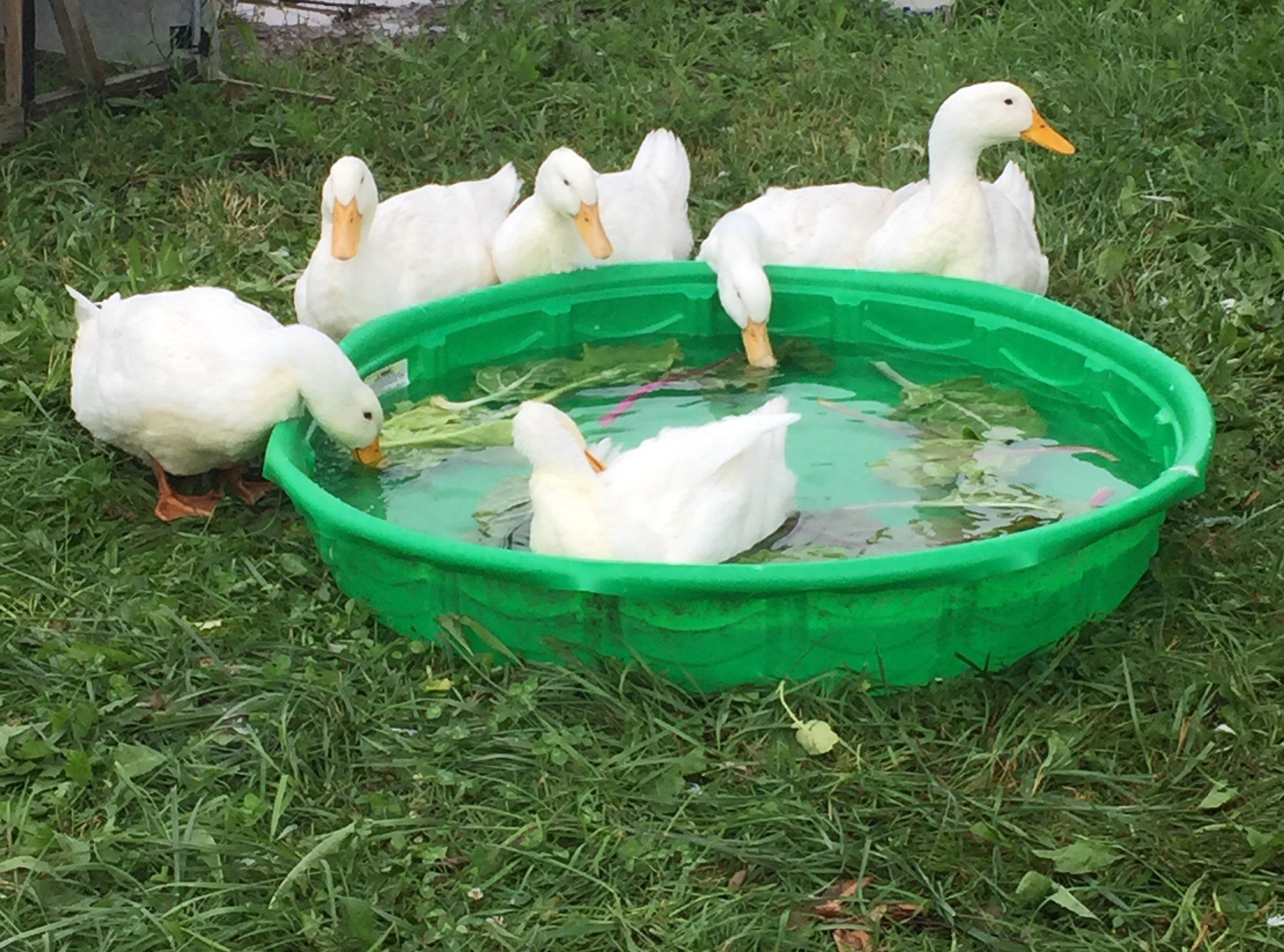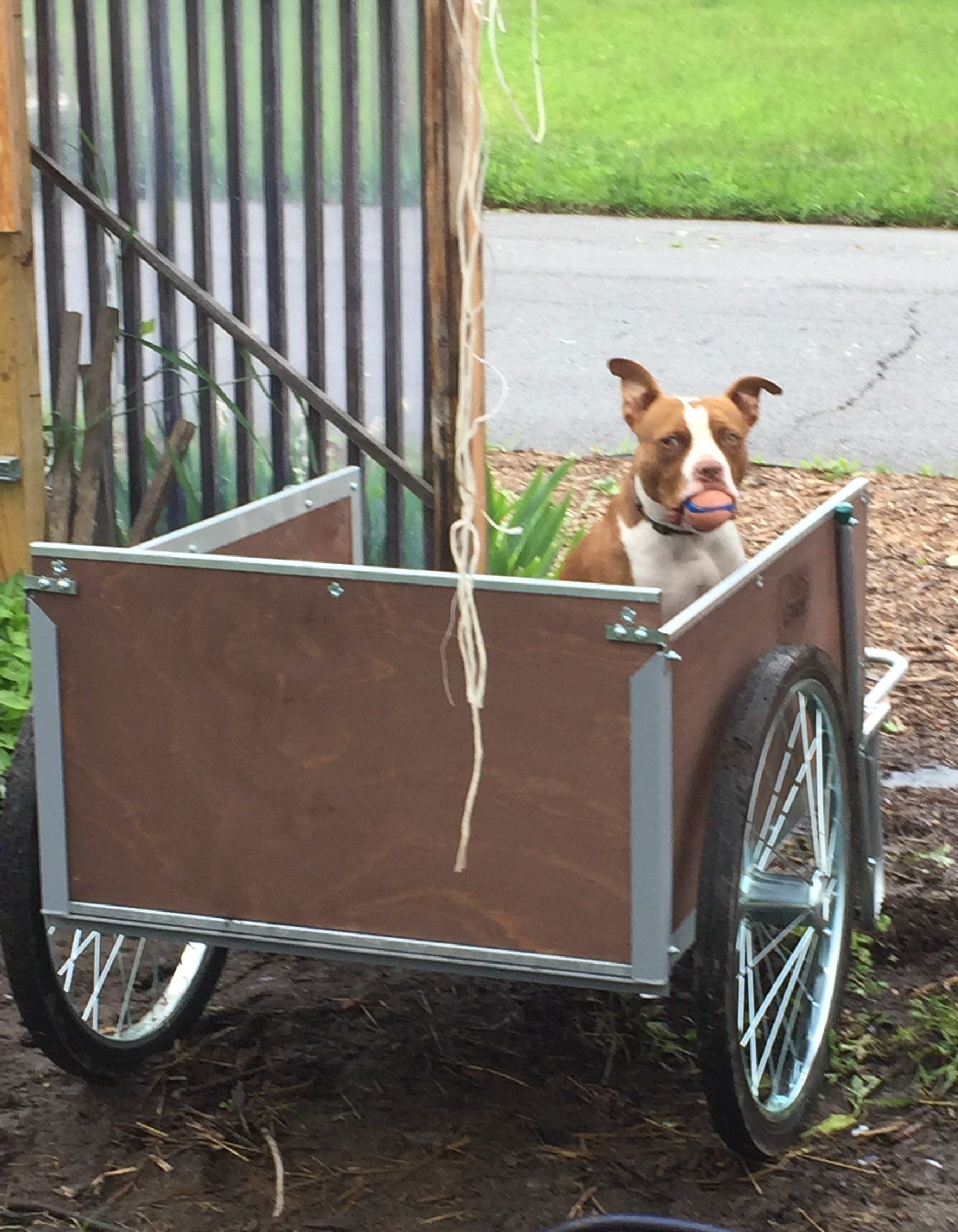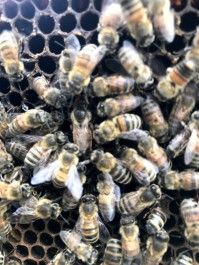It all starts with a phone call in March to a man in Arcade. Mike is his name. He’s an apiarist. A beekeeper. A bee seller. Our conversation is brief and to the point. He has bees and I want bees. After some pleasantries and verbal agreements, we agree to reconvene when the weather is better. He says he will call a few weeks before the bees are ready. I hang up pleased with the plans. In the past, we have been able to pick up bees fairly early in the year. Late May or early June is when we’ve expected them.This year we were told that the timeline for the pickup would be pushed back due to the extended spring. Understandable.
This past year we bought 2 hives to bolster our honey production. Those hives combined with our established hives brought our total up to 4. Honey was going to be flowing! Honeybees can be a fickle bunch. They enjoy space, but not too much space. They like the sun, but in doses and on their terms. They can be very sensitive to external pressures such as pesticides, rodents and other insects. Honeybees also have a fairly unpleasant way of voicing their displeasure with any substantial activity occurring around and/or to them, which makes tending to the hives slightly precarious. For all these reasons, beekeeping can be tedious, but the sweet reward outweighs the risk 99 out of 100 times. Unfortunately, bee fickleness can lead to loss of hives, mass die offs and/or swarming. This past winter the bees were exposed to some wax moths and hive beetles that forced them to die off. We found them in our springtime hive examinations. Total loss. All 4 hives were dead and gone and our spirits were low, but our perseverance to understand how best to maintain hives and harvest honey will always stay high.
Fast forward to late June. I had been in touch with bee-man-Mike several times, eager to get our nucs (Nuc is short for nucleus or beginning colony of a new hive). He told me the first week in July. We were set to take receipt of the bees. This Monday I woke up early to pick up the bees. I needed to meet Mike before 9; before the heat of the day set in and the bees evacuate the hive in search of flowers and nectar. I get there on time, we make the monetary exchange and start loading hives into my truck. The hives are heavy with honey and brood. I am excited! I dropped off our bees and a friend's bees. Everything went as planned until the final hive was taken out of the truck. After the short road trip, they were a little testy and found a way to get at me. I got stung 7 or 8 times. Less exciting, but still good to feel the awesome power of persuasion they have. It’s been too long.
Anyway, this is a long way of saying that although our honey production will drop off dramatically this year, we are hopeful for the future. Being a beekeeper is NOT an exact science and there are differing opinions on best practices. We are just figuring out what works best for us and cannot wait to be able to share the result with ya’ll.
Eat well and enjoy. J&T




